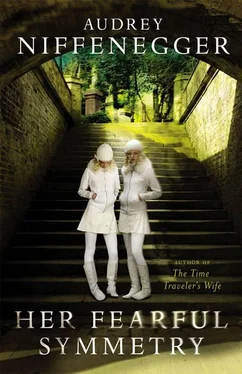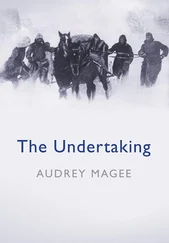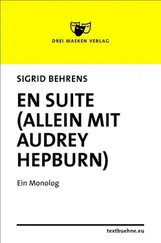Today everything proceeded smoothly. Many of Martin’s washing and grooming rituals were organised around the idea of symmetry: a stroke of the razor on the left required an identical stroke on the right. There had been a bad period a few years ago when this had led to Martin shaving every trace of hair from his entire body. It took hours each morning, and Marijke had wept at the sight of him. He had eventually persuaded himself that extra counting could be substituted for all that shaving. So this morning he counted the razor strokes (thirty) required to actually shave his beard, and then deliberately put the razor down on the sink and counted to thirty thirty times. It took him twenty-eight minutes. Martin counted quietly, without hurrying. Hurrying always mucked things up. If he tried to rush he wound up having to start again. It was important to do it well, so that it felt complete.
Completeness: when done correctly, Martin derived a (fleeting) satisfaction from each series of motions, tasks, numbers, washing, thoughts, not-thoughts. But it would not do to be too satisfied. The point was not to please himself, but to stave off disaster.
There were the obsessions-these were like pinpricks, prods, taunts: Did I leave the gas on? Is someone looking in the back-door window? Perhaps the milk was off. Better smell it again before I put it in the tea. Did I wash my hands after taking a piss? Better do it again, just to be sure. Did I leave the gas on? Did my trousers touch the floor when I put them on? Do it again, do it right. Do it again. Do it again. Again. Again.
The compulsions were answers to the questions posed by the obsessions. Check the gas. Wash my hands. Wash them very thoroughly, so there can be no mistake. Use stronger soap. Use bleach. The floor is dirty. Wash it. Walk around the dirty part without touching it. Use as few steps as possible. Spread towels over the floor to keep the contamination from spreading. Wash the towels. Again. Again. It feels wrong to enter the bedroom this way. Wrong how, exactly? Just wrong. Do it right foot first. And turn to the left with my body, there, that’s it. That feels better. But what about Marijke? She has to do it this way too. She won’t like it. Doesn’t matter. She won’t do it. She will. She has to. It feels too wrong if she doesn’t. As though something dreadful will happen. What, exactly? Don’t know. Can’t think about it. Quick-multiples of 22: 44, 66, 88…1,122…
There were good days, bad days, very bad days. Today was shaping up to be a good day. Martin thought about his time at Balliol, when he had played tennis every Wednesday with a bloke from his Philosophy of Mathematics course. There were days when he knew, even before he unpacked his racquet, that every stroke would be sweet. Today had that feeling about it.
Martin opened the bathroom door and surveyed the bedroom. Marijke had laid out his clothes on the bed. His shoes sat on the floor, neatly aligned with the legs of his trousers. Every article of clothing was arranged in a precise pattern. No piece of clothing touched any other. He contemplated the hardwood floor of the bedroom. There were spots where the finish of the wood had been worn away, places where the floor was warped from moisture-but Martin disregarded all that. He was trying to discern whether the floor was safe to walk on in his bare feet. Today, he decided that it was. Martin strode to the bed and began to dress himself very slowly.
As each piece of clothing settled onto his body, Martin felt increasingly secure, enveloped in the clean, worn fabric. He was very hungry, but he took his time. Eventually, Martin slid his feet into his shoes. The shoes were problematic. The brown oxfords were a sort of negotiation between his clean body and the always unnerving floor. He disliked touching them. But he did, and managed to tie the laces. Marijke had offered to get him trainers with Velcro straps, but Martin felt aesthetically repelled by the very idea.
Martin always dressed in sober, dark clothing; he exuded formality. He did not go so far as to wear a tie around the flat, but he always looked as though he had just removed one, or was looking for a tie to put on before he rushed out the door. Since he had stopped leaving the flat, his ties stayed on the rack in his wardrobe.
Dressed, Martin walked cautiously through the hall and into the kitchen. His breakfast was laid out on the kitchen table. Weetabix in a bowl, a small jug of milk, two apricots. He pressed the button on the electric kettle, and in a few minutes the water boiled. Martin had few compulsions associated with food (they mainly involved chewing things a certain number of times). The kitchen was Marijke’s domain, and she always made him take whatever was bothering him to another part of the flat. He tried never to turn on the stove, because he found it impossible to be sure that he’d turned it off again and would stand for hours with his hand on the knob, turning it back and forth. But he could make tea with the electric kettle, and he did so.
Marijke had left the newspapers next to his bowl of cereal. They were pristine, still neatly folded. Martin felt a little surge of gratitude-he liked to be the first to open the fresh newspapers, but he never got to them before she did. He unfurled the Guardian and went directly to the crossword.
Today was Thursday, and for Thursdays Martin always set a crossword with a scientific theme. This particular one concerned astronomy. Martin scanned it briefly to be sure that everything was correct. He was especially proud of the puzzle’s form, which sprawled across the grid in the shape of a rather boxy and completely symmetrical spiral galaxy. He then turned to the solution for yesterday’s puzzle, a strict Ximenean which had been set by his fellow compiler Albert Beamish. Beamish set under the name Lillibet; Martin had no idea why. He’d never met Beamish, though they spoke on the phone occasionally. Martin always imagined him as a hairy man in a ballet costume. Martin’s own setting name was Bunbury.
Martin opened The Times, the Daily Telegraph, the Daily Mail and the Independent and began combing through them for interesting news items. The crossword he was working on at the moment was about the history of warfare in Mesopotamia. He wasn’t sure if this was going to fly with his editor, but like any artist he felt the need to express his preoccupations through his work, and Iraq had been much on Martin’s mind lately. Today the news was full of an especially bloody suicide bombing in a mosque. Martin sighed, got his scissors and began cutting out the articles.
After breakfast, he washed up (in a fairly normal fashion) and stacked the papers neatly (though they had become somewhat lace-like). He went into his office, bent over to turn on the desk lamp. As he straightened up something brushed his face.
Martin’s first thought was that a bat had somehow got into the office. But then he saw the envelope, swinging gently on its thread, hanging from the ceiling. He stood and considered it. His name was written on it in Marijke’s bold handwriting. What have you done? His mind went blank, and he stood in front of the dangling envelope with his head bowed and his arms crossed protectively over his chest. At last he reached out and took it, gave a little tug that detached the thread from the ceiling. He opened it slowly, unfolded the letter, groped for his reading glasses and put them on. What has she done?
6 January
Lieve Martin,
My darling husband, I am sorry. I cannot live this way anymore. By the time you are reading this letter I will be on my way to Amsterdam. I have written to Theo to tell him.
I don’t know if you can understand, but I will try to explain. I need to live my life without being always vigilant to calm your fears. I am tired, Martin. You have worn me out. I know that I will be lonely without you, but I will be more free. I will find myself a little apartment and open the windows and let the sun and the air come in. Everything will be painted white, and I will have flowers in all the rooms. I will not have to always enter the rooms with my right foot first, or smell bleach on my skin, on everything I touch. My things will be in their cupboards and drawers, not in Tupperware, not wrapped in cling film. My furniture will not wear out from being scrubbed too much. Maybe I will have a cat.
Читать дальше












